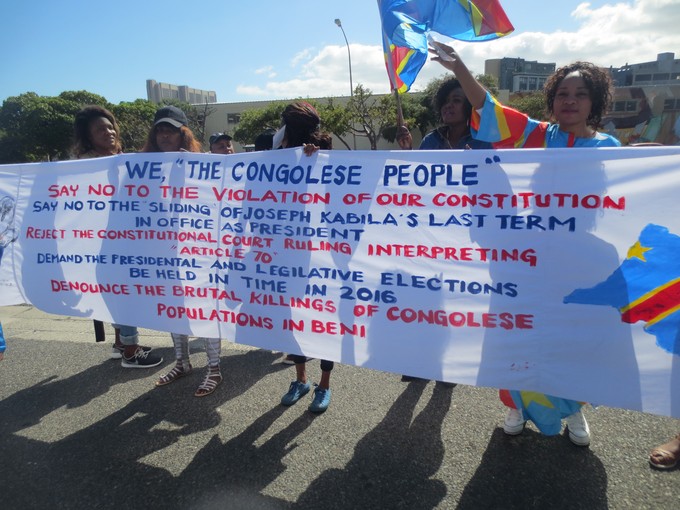Congolese immigrants march against Kabila
Protesters denounce violence in Kinshasa
About 50 Congolese living in Cape Town marched from Keizersgracht Street to parliament on Friday, protesting against violence against demonstrators in Kinshasa on 19 and 20 September 2016.
The organiser of the protest and spokesperson for the Congolese Diaspora of SA, Christian Sita Mampuya, said about 100 protesters had been killed by the government of Democratic Republic of Congo (DRC) president Joseph Kabila for demonstrating against him.
The delay in announcing elections to replace Kabila had sparked the protests.
Kabila’s second and last term in office expires in December. Presidential elections were to have been called for 90 days before the end of his term but the electoral commission did not announce the elections on 19 September as expected, said Mampuya.
“Today we are marching to denounce those killings. We say no to the violation of our constitution,” said Mampuya.
He said the marchers were demanding elections in 2016 and calling on the South African government to stop working with Kabila because he would no longer be president from 19 December.
The protests are to continue until 19 December.
Gerard Massaya said if Kabila stepped down many Congolese would return home.
“If Kabila steps down you will see all of us leaving South Africa. We are not happy to be here, our freedom is limited, life is difficult and we are scared of xenophobia.”
But if Kabila served another term civil war might erupt again in DRC leading to many people fleeing the country seeking refuge in other countries, he said.
Support independent journalism
Donate using Payfast

Don't miss out on the latest news
We respect your privacy, and promise we won't spam you.
Next: UCT academics ask Max Price not to use private security
Previous: NMMU students canvass support in the streets of PE
© 2016 GroundUp. 
This article is licensed under a Creative Commons Attribution-NoDerivatives 4.0 International License.
You may republish this article, so long as you credit the authors and GroundUp, and do not change the text. Please include a link back to the original article.

